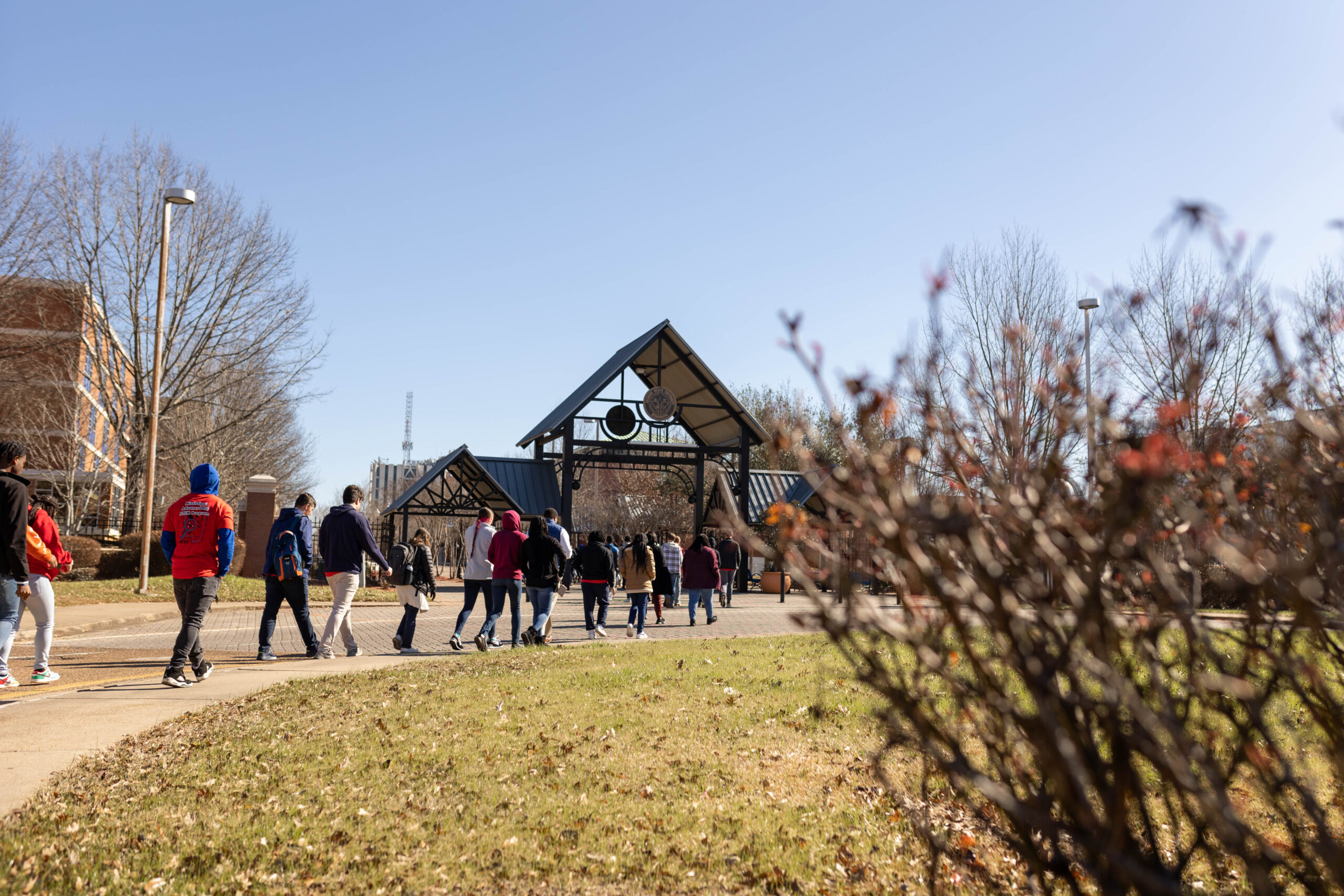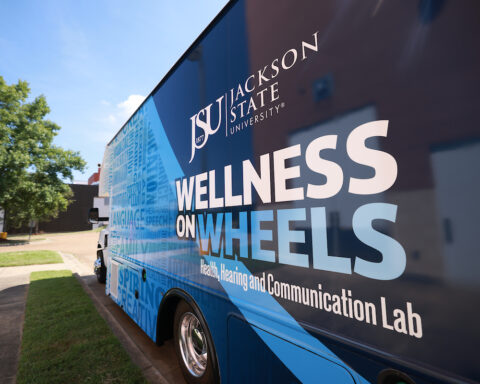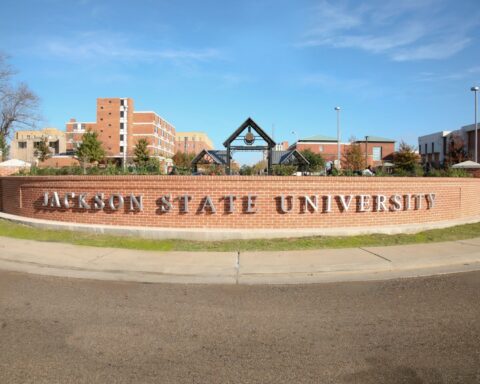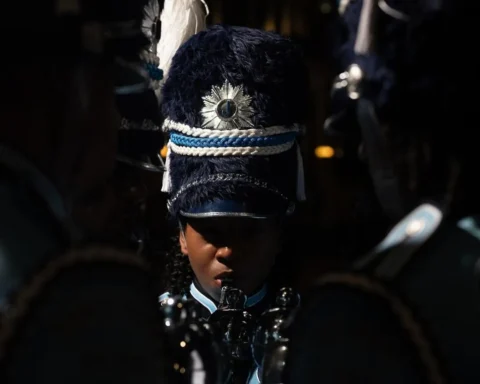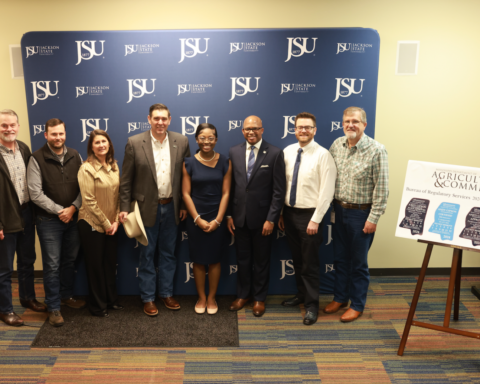Courtesy of Jackson State University
Jackson State University and the Margaret Walker Center hosted approximately 200 high school students and educators from rural Mississippi during the Martin Luther King, Jr. Day holiday weekend as part of the Global Teaching Project’s Advanced STEM Access Program. The students, who are studying AP Biology, AP Physics, and AP Computer Science at their schools, engaged in three days of rigorous academics, and explored civil rights history at the university and in the city of Jackson.
During the program, students visited a variety of historical landmarks, both political and civil, and heard from community leaders and civil rights experts at each location, including the Mississippi State Capitol Building, the Old State Capitol, the Mississippi Museums of History and Civil Rights, the Margaret Walker Center, and the JSU campus.
The Director of the Margaret Walker Center, Robert Luckett, Ph.D., was featured as a keynote speaker and provided tours of the MWC and Ayer Hall, the oldest building on the JSU campus. Luckett explained JSU’s and Margaret Walker’s key role in the drive for civil rights, and recognition of the MLK holiday.
“Margaret Walker herself advocated for MLK day and was one of the people from the beginning pushing for a national holiday. She was deeply impacted by Dr. King’s assassination in 1968, which was the same year that she founded the center named after her that I now run,” said Luckett.
The Global Teaching Project’s Advanced STEM Access Program, now in its sixth year, is a nationally recognized initiative that provides promising high school students from rural Mississippi access to advanced STEM classes they need to achieve their full potential, but which their schools otherwise may not be able to offer. The program currently provides 67 courses in AP STEM subjects at 33 high schools, and is provided free of charge to students and schools.
The Advanced STEM Access Program works with Mississippi high school teachers, as well as faculty and teaching assistants from prominent universities, to offer instruction through a blended format that uses both in-person classroom instruction and remote teaching. Classroom sessions offered as part of regular class schedules are supplemented by immersive, residential, university-based instructional sessions, including an annual program at Jackson State.
For the past five years, except for 2021 due to the pandemic, GTP AP students have traveled to Jackson State during MLK weekend for in-person STEM classes held in the JSU College of Science, Engineering, and Technology building.
Matt Dolan, CEO of the Global Teaching Project, said that the program specifically set out to celebrate the legacy of Dr. King through education, and that there was no better place to do so than Jackson State.
“Jackson State faculty and staff have been closely involved with our program since its inception, and GTP alumni attending Jackson State remain key contributors to our program,” Dolan said. “Most of all, Jackson State as an institution affirms both the academic excellence and civic virtues we seek to promote through our MLK program, which couples substantive STEM instruction with ancillary sessions that emphasize the nexus between civil rights and educational opportunity.”
The bulk of students participating in the Advanced STEM Access Program would not typically have access to those AP STEM classes due to attending high schools in underserved areas.
“Dr. King saw education as a central piece of the civil rights movement. Knowing our history of Margaret Walker and her connection to Dr. King, there’s just so much synchronicity there for us and to be able to do that work and do it this weekend has incredible importance,” said Luckett.
Jackson State computer science graduate student Carolyne Rutto, who also serves as a grad assistant at the Margaret Walker Center, was among the teaching assistants at the MLK program.
Rutto, who earned an undergraduate degree in computer science from JSU, joined teaching assistants from the University of Virginia, Yale, Harvard, Mississippi State, and elsewhere to tutor students and be available for questions and guidance. Rutto assisted computer science students, both during classroom sessions and afterwards with take-home assignments.
“It was a privilege to be part of the program. Interacting with the project organizers, instructors, fellow teaching assistants, and the high school students was a great learning experience,” Rutto said. “We were able to visit some of the historical buildings, and also hear from a variety of invited guest speakers. Generally, the weekend was educational, impactful, and interactive.”

